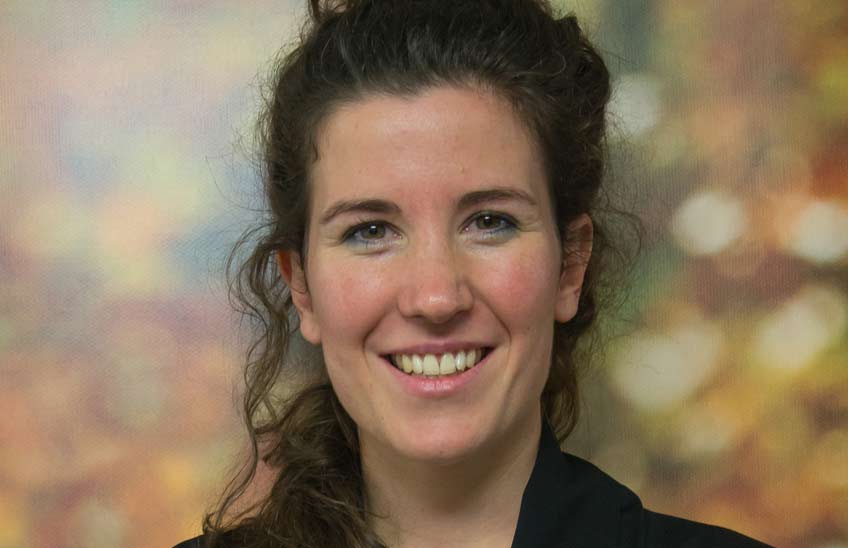"Palliative sedation must be guided by a team multidisciplinary with expertise in palliative care to be ethical".
An ATLANTES Programme publication analyses the internship of palliative sedation through a review of programs of study prospective studies.

FotoManuel Castells/<br>Alazne Belar, investigadora de ATLANTES.
17 | 02 | 2021
"Palliative sedation must be guided by a team multidisciplinary with experience in palliative care in order to be ethical". This is what Alazne Belar, researcher of the ATLANTES Program of the Institute for Culture and Society (ICS) of the University of Navarra, in the framework of the article 'Clinical Aspects of Palliative Sedation in Prospective Studies. A Systematic Review'. This was one of the conclusions of the publication, where a systematic review of programs of study prospective studies was carried out.
The article, published in the Journal of Pain and Symptom Management, explores how this internship is performed in the clinical setting. As the researcher explains, palliative sedation is a medical intervention that aims to alleviate the patient' s intolerable suffering at the end of life. For this purpose, treatments are administered that reduce the patient's level of consciousness.
"This administration must be proportional to the relief of the patient's suffering, and may result in intermittent or continuous, superficial or deep sedation," he emphasizes. He stresses that palliative sedationdoes not bring forward or cause the patient's death, nor is this its goal. Death occurs naturally due to the disease.
According to Belar, a team multidisciplinary with sufficient experience in palliative sedation is core topic to also assess when a symptom is refractory, prior to palliative sedation treatment. The researcher explains that these symptoms are those that cause intolerable suffering in the patient and cannot be relieved by other methods because they do not respond to standardized treatments. The main symptoms that can give rise to a status of refractory suffering are delirium, dyspnea and pain, or more frequently a combination of symptoms.
Correctly assess the status to offer the best care
Belar considers it essential to establish a common evidence-basedguide specifying how to perform the holistic evaluation of the patient's status and subsequent follow-up.
She also stresses that the level of patient sedation must be proportional to the level of patient comfort for this internship to be adequate. "We hardly found programs of study that measures the effects of sedation on patient comfort with validated scales", the researcher indicated. For this reason, ATLANTES is going to participate in a prospective study that considers the comfort of patients receiving this treatment as a central point of quality palliative sedation.
This research is part of the project 'Palliative sedation', funded by the European Commission in the European Union's Horizon 2020 Program. This is an international multicenter study that investigates palliative sedation from all areas: internship medical, research, Education, ethics, Economics, policy, etc.
This work contributes to approach of person-centered medicine, one of the main lines of research of the 2025 strategy of the University of Navarra. "Palliative sedation is true personalized medicine because it aims to alleviate the patient's overall suffering at the end of life when it becomes refractory," concludes Belar.
